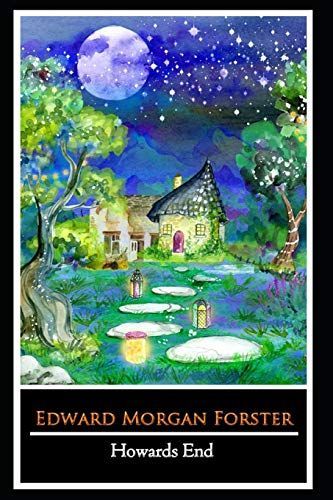
Howards End Novel by E. M. Forster (Domestic Fictional Novel) "The Annotated Edition"
First published in 1910, Howards End is the novel that earned E. M. Forster recognition as a major writer. At its heart lie two families--the wealthy and business-minded Wilcoxes and the cultured and idealistic Schlegels. When the beautiful and independent Helen Schlegel begins an impetuous affair with the ardent Paul Wilcox, a series of events is sparked--some very funny, some very tragic--that results in a dispute over who will inherit Howards End, the Wilcoxes' charming country home. As much about the clash between individual wills as the clash between the sexes and the classes, Howards End is a novel whose central tenet, "Only connect," remains a powerful prescription for modern life.The story revolves around three families in England at the beginning of the 20th century: the Wilcoxes, rich capitalists with a fortune made in the Colonies; the half-German Schlegel siblings (Margaret, Tibby, and Helen), whose cultural pursuits have much in common with the real-life Bloomsbury Group; and the Basts, an impoverished young couple from a lower class background. The idealistically motivated, well read, highly intelligent Schlegel sisters seek to help the struggling Basts, wishing at the same time to rid the Wilcoxes of some of their deep-seated social and economic prejudices.The Schlegels had briefly met and befriended the Wilcoxes when both families were hiking in Germany. Helen, the youngest daughter, is romantically attracted to the younger Wilcox son, Paul; they get engaged in haste but soon afterwards regret their decision, each rejecting the other for different reasons. The engagement is consequently broken off without acrimony, by mutual consent, despite a somewhat awkward intervention by Helen's aunt, Juley. The eldest daughter, Margaret, then resumes her friendship with Paul's mother, Ruth Wilcox. Ruth's most prized personal possession is her family home at Howards End. She invites her friend to come and visit, feeling that Margaret would immediately connect with the values and history which the old house represents. Ruth's own husband and children do not greatly cherish Howards End, for all its rich cultural heritage; such abstractions, while being very dear to Margaret, are relatively insignificant to them, other than the property's real estate value on the housing market. However, owing to a series of circumstances Margaret never gets a chance to visit Howards End while her friend Ruth is still alive.